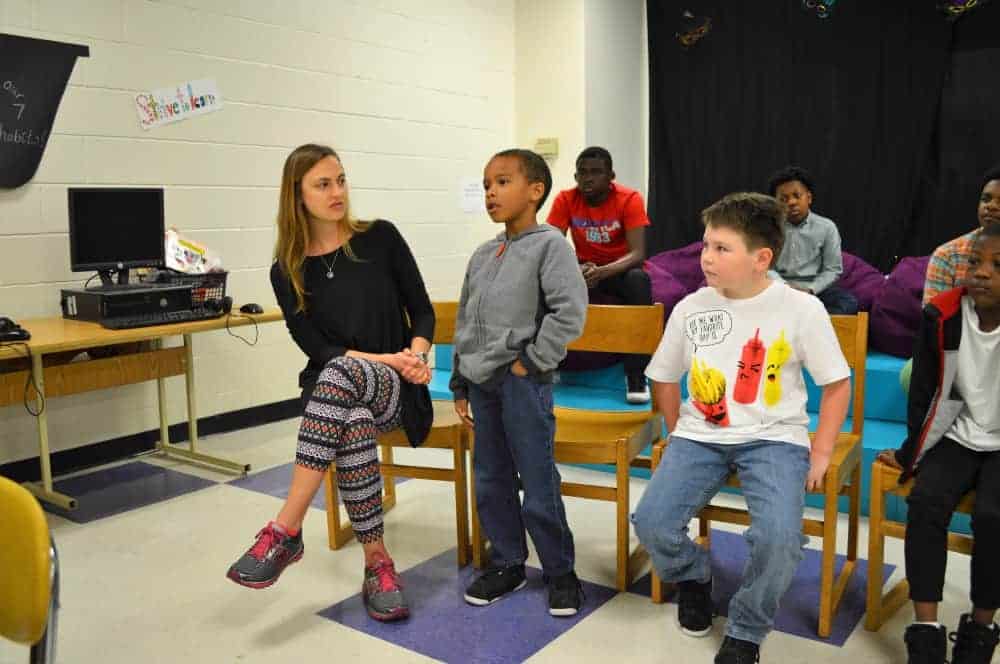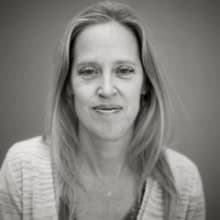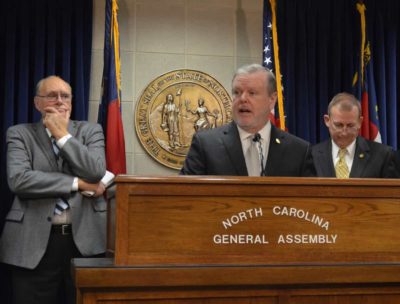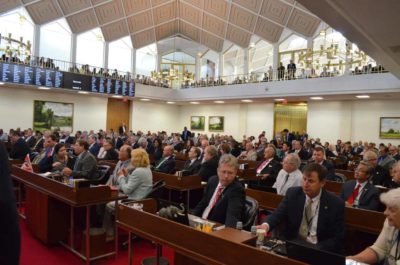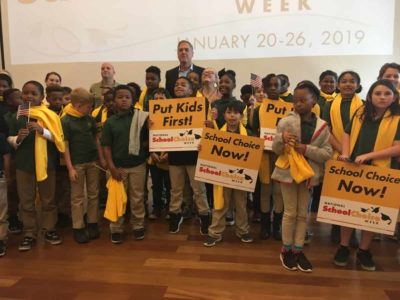Across Edgecombe County — an area of 52,000 people about an hour east of Raleigh — community members have been considering this question: What do we want to be true for our students by the time they’re 25?
I know about this endeavor because it involves a married couple, Dan Riley and Erin Swanson, two Teach For America alumni who put down roots in the community. They came together with about two dozen people, including students, teachers, parents, the schools superintendent, clergy members, business and non-profit leaders, and elected officials to collectively reconsider their aspirations in light of today’s challenges and opportunities.
The superintendent in the area, Dr. Valerie Bridges, says at 25 life has been launched. People are ideally on a path of some kind. It’s a sign of how well all of the work the community put into supporting children when they were younger has come to fruition.
The need for these conversations comes as schools and the surrounding supports for children are less and less well-positioned to meet students’ needs. Our education systems were created more than 150 years ago, when society’s aspirations and circumstances were very different. Times have changed, but schools have not. To give children the best opportunity to fulfill their potential, we need all communities engaging in what I’ll call 25-Year-Old Projects, just as they are in eastern North Carolina.
Edgecombe County is part of an economically depressed rural region that has wrestled with discrimination and the loss of industry. Families make an average of $32,298 a year, more than $20,000 less than the national average. The area is about 58 percent black and 36 percent white.
Dan became a teacher coach after teaching. He was living in the Raleigh-Durham area and driving into the rural areas to visit schools when he realized he was too disconnected from the communities where he was working.
He moved to the county seat, Tarboro, and he started trying to bring parents together to formulate a local vision about what they wanted for their children. He encountered one of two outcomes: either very few people showed up, or the resulting discussion was shallow. In an artificial setting, with people of different racial and economic backgrounds, Dan’s neighbors were reluctant to engage.
He changed course, embedding his effort into pre-existing structures, like churches. “People felt more free to share because they were on their home turf, but it was still just an hour-long discussion,” he said.
Ultimately, Dan, his wife, who worked for the county public schools, and the then schools superintendent got to talking and found their way to tapping into a larger appetite for a community-led undertaking. In 2016, the superintendent launched the Commission on Educational Equity.
To learn more about what the future might hold for students growing up today, and to decide what they want to be true for them when they grow up, the Commission went on tours of local employers and set up panel discussions with regional experts. These activities helped expose the differences in the Commission members’ orientations. For example, some parents were thrilled that a Chinese tire company was building a factory in the area, which would create hundreds of jobs. Other people, like Dan, were concerned those jobs would eventually be replaced by automation. The students on the Commission grew smitten with some of the exciting positions they saw, like roles for electrical engineers, and discounted others, like assembly-line roles.
These differences developed into discussions about post-secondary options. Should all students be prepared to attend college? Should the community advocate to bring back some vocational programs like brick masonry? What’s best for kids? Who decides?
These are healthy questions for a community to surface, and resolve, together. Only 37 percent of Americans believe children today will grow up to be better off financially than their parents. Especially for a country founded by strivers and built on forward progress, that’s a problem. We need to consider what we want to be true not only for ourselves and our communities, but also for our country and our global society, and we need to get clear on the implications of working towards this vision for today’s students. And indeed, through my travels to meet with educators around the world with Teach For All, it’s clear that this isn’t just a national shift that needs to take place. These discussions need to be happening in communities everywhere.
Ultimately, hours and hours of conversation and countless community meetings led the Commission to five wishes for their 25-year-olds: to know their passions and live them out, to have global awareness and agency, to productively engage in the community, to have clear and sustainable options to stay or return to the county, and to be resilient.
What the community wants to be true for their 25-year-olds now guides the direction of the schools. The Commission’s clarity of vision helped the school district win a grant to start a pilot program focused on project-based learning as a strategy for cultivating students’ interests. They’re now several months into an effort to see whether student-conceived courses will more effectively prepare students than traditional subject classes. The program even has a “Genius Bar,” a la Apple Store, where an expert from the community helps answer questions and guide students on their learning journey.
At long last, schools around eastern North Carolina are being led by what the future holds and what the community wants, rather than what the past dictates.
May more communities follow Edgecombe County’s lead.
Editor’s note: This perspective was first published on the Teach for All blog. It has been posted with the author’s permission.
